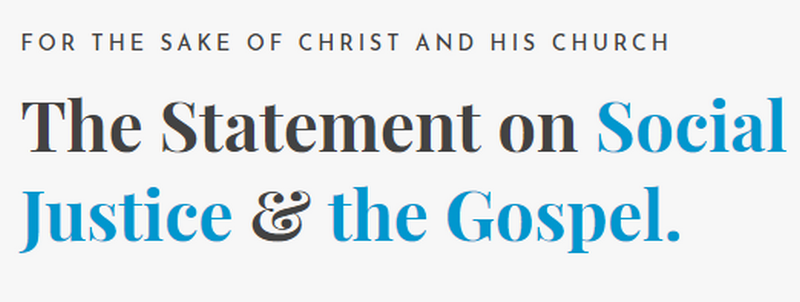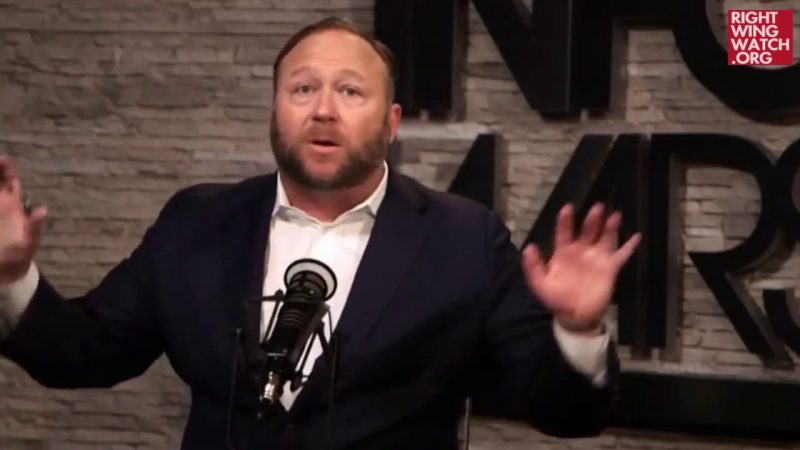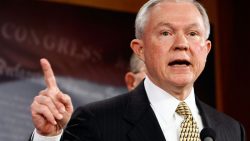More than 3,000 evangelical Christians and organizations have endorsed “The Statement on Social Justice & The Gospel,” which is being promoted by pastor and author John MacArthur.
We noted back in May that a Southern Baptist pastor had introduced a resolution for the denomination’s convention saying that social justice activism—appearing under terms such as eco-justice, economic justice, racial justice, and global justice—“should be considered evil.” On Wednesday, the Christian Post reported on the new statement, noting that its release “comes in the wake of MacArthur’s recent controversial series that brands social justice as a real threat to the Gospel.”
The new statement was put together by a group of men who began the effort at a meeting in Dallas in June. Signers include E.W. Jackson, WND’s Joseph Farah, anti-LGBT activist Matt Barber, anti-environmentalist Calvin Beisner of the Cornwall Alliance, and Michael O’ Fallon of Sovereign Nations. The statement warns that preachers should “avoid being blown to and fro by every cultural trend that seeks to move the Church of Christ off course.” The statement declares:
And we emphatically deny that lectures on social issues (or activism aimed at reshaping the wider culture) are as vital to the life and health of the church as the preaching of the gospel and the exposition of Scripture. Historically, such things tend to become distractions that inevitably lead to departures from the gospel.
The statement includes a series of affirmations and denials. For example:
“WE DENY that true justice can be culturally defined or that standards of justice that are merely socially constructed can be imposed with the same authority as those that are derived from Scripture. We further deny that Christians can live justly in the world under any principles other than the biblical standard of righteousness,” the statement says. “Relativism, socially-constructed standards of truth or morality, and notions of virtue and vice that are constantly in flux cannot result in authentic justice.”
The statement’s signers declare that they are “deeply concerned that values borrowed from secular culture are currently undermining Scripture in the areas of race and ethnicity, manhood and womanhood, and human sexuality.”
The statement denounces racism as sinful, but also says:
We reject any teaching that encourages racial groups to view themselves as privileged oppressors or entitled victims of oppression. While we are to weep with those who weep, we deny that a person’s feelings of offense or oppression necessarily prove that someone else is guilty of sinful behaviors, oppression, or prejudice.
The Christian Post notes that MacArthur—who has been critical of MBK50, an April conference on racial unity sponsored by the Gospel Coalition and Southern Baptist Ethics & Religious Liberty Commission—does not believe racism is a problem in evangelical churches:
He says while he can understand why those in secular culture will seek to fight racism under the banner of social justice, he sees no reason for evangelicals to take up that cause because he has never seen racism as a problem in any authentic evangelical church.
“We reject ‘gay Christian’ as a legitimate biblical category,” declares the statement, which also promotes “complementarity” of the sexes:
In marriage the husband is to lead, love, and safeguard his wife and the wife is to respect and be submissive to her husband in all things lawful. In the church, qualified men alone are to lead as pastors/elders/bishops and preach to and teach the whole congregation. We further affirm that the image of God is expressed most fully and beautifully in human society when men and women walk in obedience to their God-ordained roles and serve according to their God-given gifts.
O’Fallon, one of the statement’s creators and initial signers, wrote his own blog post on the statement. He complained that, while the evangelical church “has been a massive conservative force over the past 50 years,” evangelical denominations, churches, and seminaries have more recently been “focusing on teaching their future pastors postmodern concepts such as critical race theory and intersectionality.” Churches, O’Fallon wrote, “are pushing progressive agendas along with the teaching of unconscious bias training and the deceptive idea of ‘white privilege.’”
The Statement on Social Justice and the Gospel has ignited online debate and drawn criticism from both liberal Christians and conservative evangelicals. On Tuesday, Ryan Burton King, a Baptist pastor located in the United Kingdom, announced that he would not sign the statement, calling it “a cynical, misguided document that has been pitched by the wrong people, at the wrong time, in the wrong way, and with wrong ideas and understandings in the background.” More from King:
“Purporting to address an alleged shift in evangelical circles away from the biblical gospel towards a false social gospel, the new Statement on Social Justice and the Gospel is driven by people I would like to believe are well-meaning but frankly not at all ‘getting’ what those whom it primarily addresses are saying. That is at best. At worst, it represents a toxic agenda to discredit and undermine godly men and women crying out for biblical social justice, national and ecclesiastical repentance, and meaningful reconciliation. I certainly hope that this statement will not become a litmus test for orthodoxy, as if those who don’t sign it should be written off as ‘not sound’,” he said.
Ryan’s comments have been seconded by Texas pastor Dwight McKissic. The Christian Post has also noted that Anthony Bradley at King’s College in New York City, slammed MacArthur’s recent comments on social justice, saying MacArthur “face plants in a pile of ideological conservative rubbish.”
James White, another statement signer, devoted nearly an hour on Wednesday to defending it.









